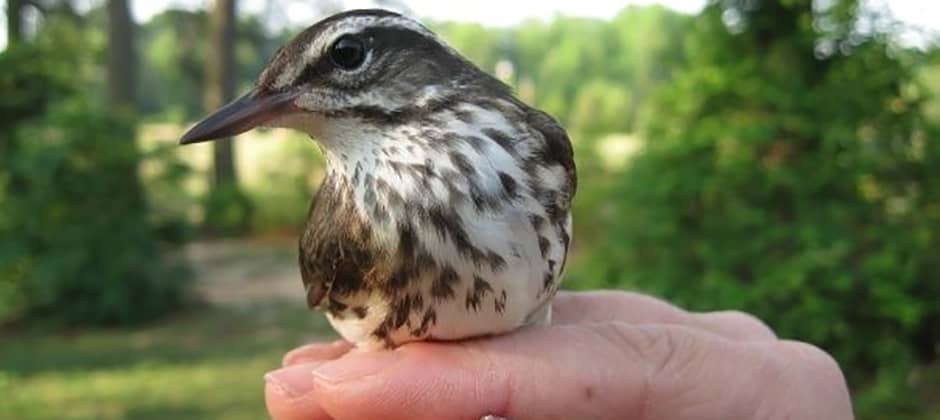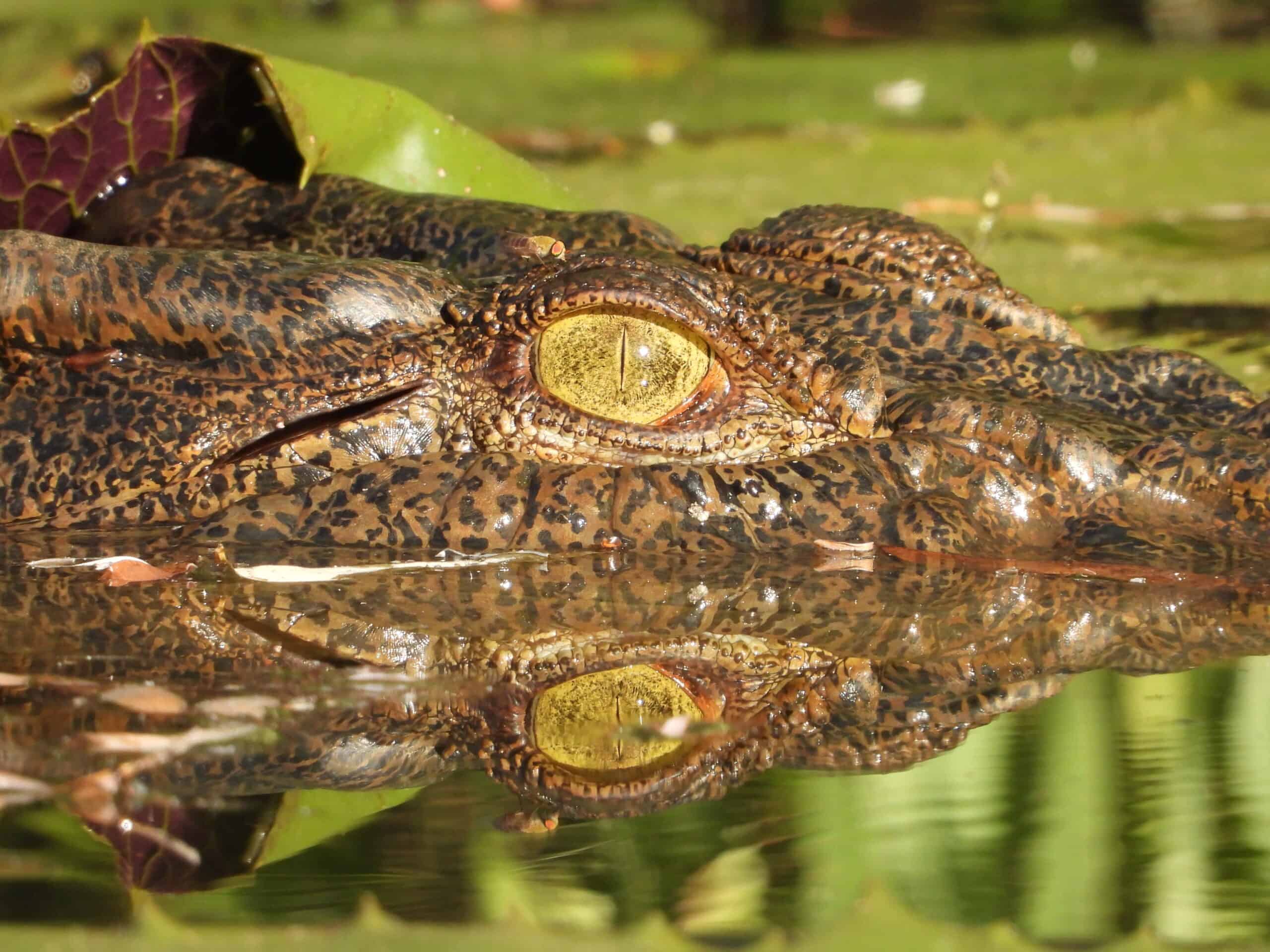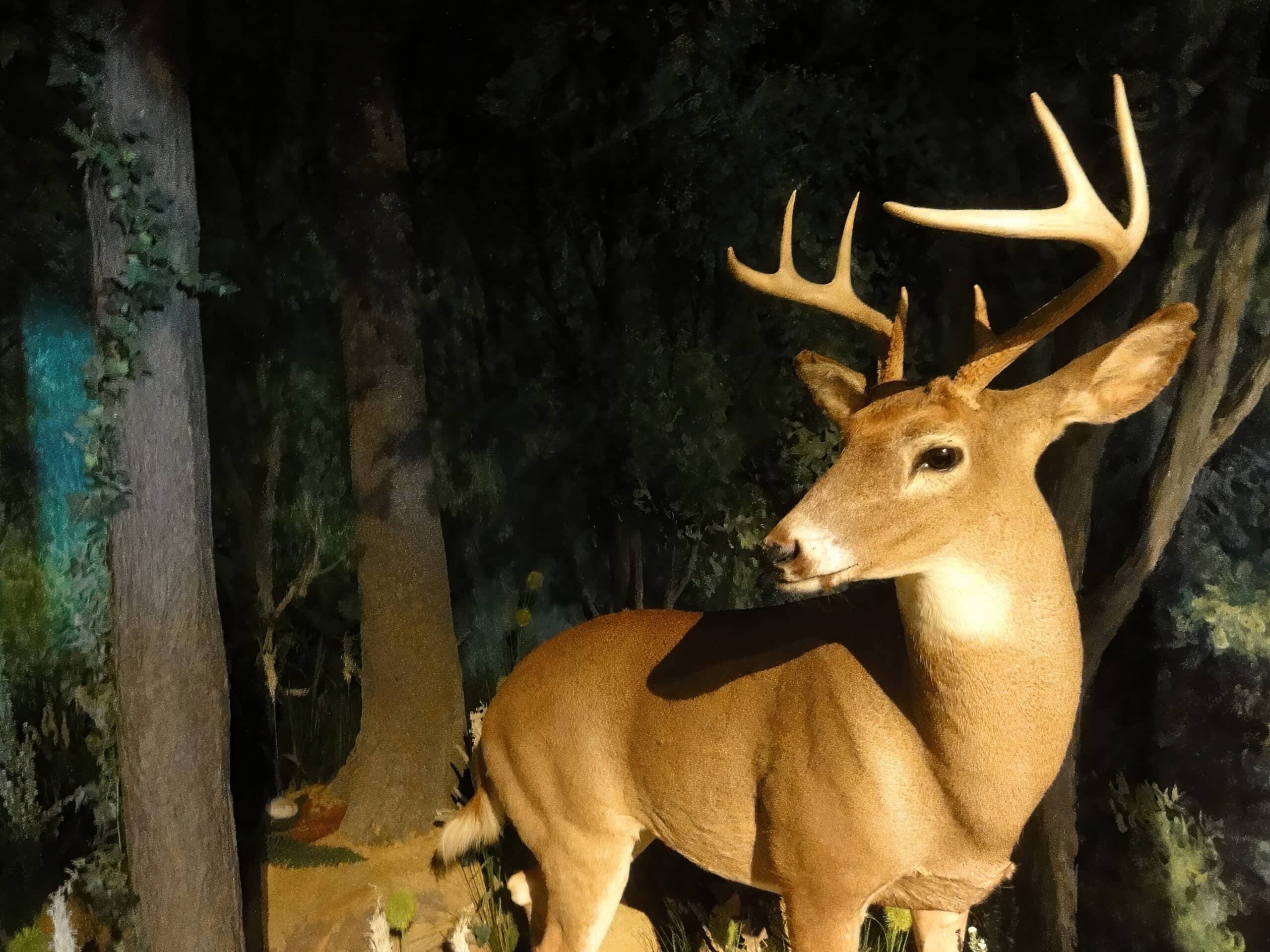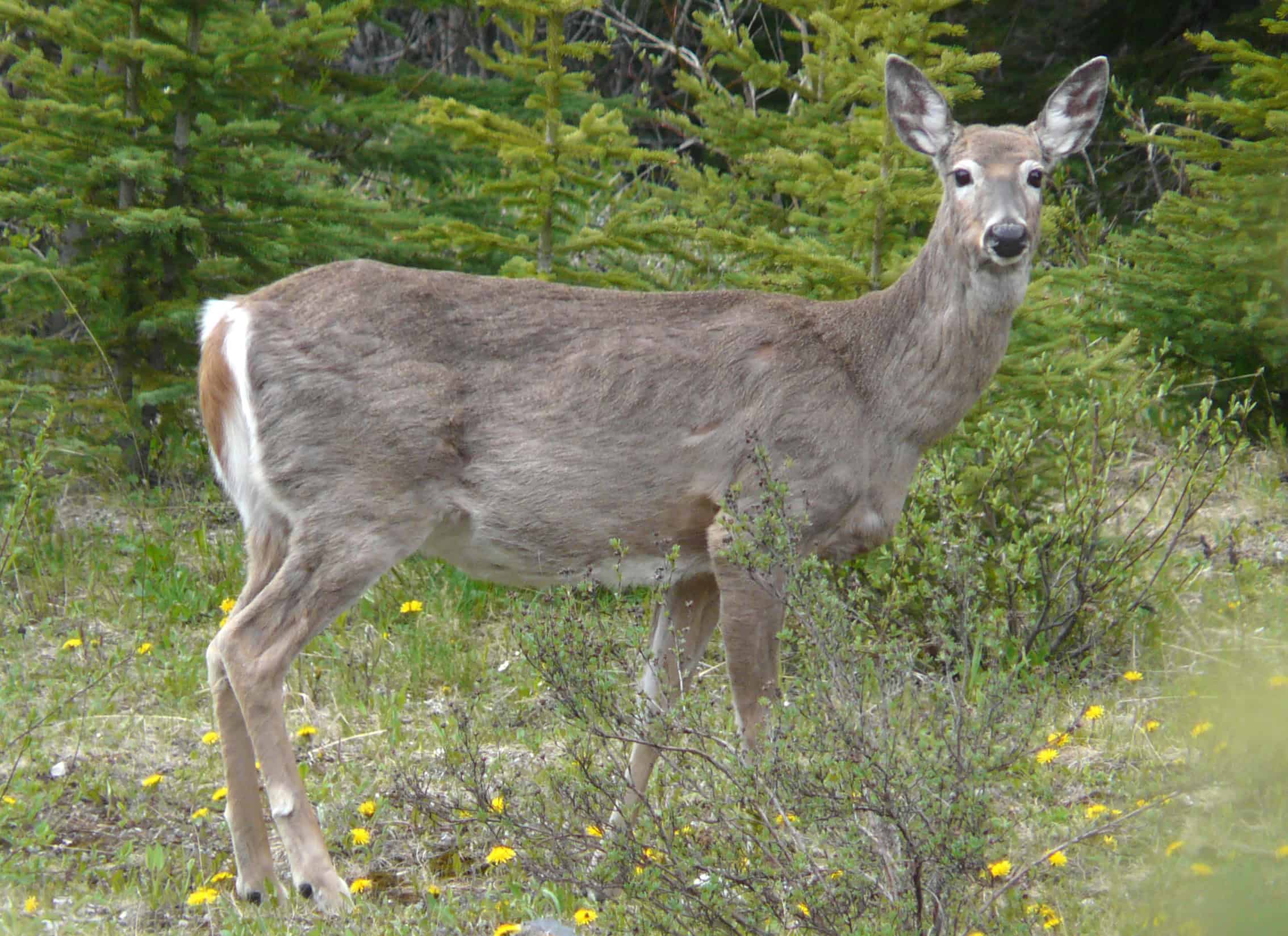Share this article
‘It’s more than just about a bird’
As TWS member Mack Frantz studied songbirds in northern West Virginia, he and his colleagues found that natural gas development in the Marcellus Shale formation was reducing the Louisiana waterthrush’s (Parkesia motacilla) reproductive success. Their study, they believe, was one of the first to show that natural gas development in the region was leading to a species’ decline.
Published in The Condor, the research led Frantz to earn the BioOne Ambassador award, which recognizes early-career researchers for communicating the importance and impact of their specialized research to the public.
“I’m still in shock over it to be honest,” Frantz said. “I’m just really happy to see the research out there. Once it’s out there, hopefully we can be more proactive in trying to protect some of the headwater ecosystems.”

Now a state zoologist at the West Virginia Division of Natural Resources, TWS member Mack Frantz completed his research as a graduate student at West Virginia University as part of the USGS West Virginia Cooperative Fish and Wildlife Research Unit.
Now a state zoologist at the West Virginia Division of Natural Resources, Frantz completed the research as a graduate student working with Petra Wood of the USGS West Virginia Cooperative Fish and Wildlife Research Unit at West Virginia University.
“Our study shows the benefit of doing a long-term study,” he said. “If we didn’t collect six years of data, we may have thought there was annual variability. But we tried to factor in as many biotic and abiotic factors as possible to be able to identify if the change was associated with shale gas development. And we were ground truthing while we were there, so we knew where the development was occurring.”
Nicknamed the “feathered trout,” the Louisiana waterthrush breeds only along forested headwater streams, where it mostly feeds on aquatic insects. Mack and his colleagues studied the bird in West Virginia’s Lewis Wetzel Wildlife Management Area. Only about 5% of the forests in the 13,590-acre area had been disturbed for shale gas development. But Mack found that was enough to cause declines in the bird population, likely due to the network of roads and pipelines associated with natural gas extraction, impacts to water quality and impacts to the insect populations the bird eats.
“We homed in on this one focal species with specific habitat requirements, and we were seeing these general declines over time, but it’s a multitude of species that are likely affected,” he said.
Frantz would like to see the study expand beyond one watershed to look at regional impacts on multiple species.
“People will say, ‘It’s just a bird. Why does it matter?’ but we are talking about our headwater streams, which are largely overlooked for protections and regulation,” he said. “But that’s where our public drinking water comes from. Any nutrients and minerals that are in these headwater streams are what drives the drainage areas further downstream. It’s more than just about a bird.”
Header Image: TWS member Mack Frantz found that a population of Louisiana waterthrush in West Virginia was declining due to shale gas development. ©Mack Frantz








